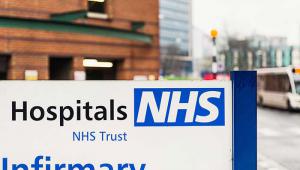An extra £200m to £350m is needed to help hospital, mental health, community and ambulance service trusts cope with increased demand on their services, the trade body said.
In a report out today it noted the situation is likely to be worse than last year because the £1bn of extra social care investment announced in the spring budget has been inconsistently allocated to trusts.
Key staff shortages, increases in A&E demand indicate bed blocking targets are likely to be missed.
NHS Providers chief executive Chris Hopson said at its height last winter’s pressure meant the NHS had to provide an extra 4,500 beds a day – equivalent to eight additional hospitals.
Hopson added: “Patient safety was compromised as local services struggled to cope with the pressures.
“At times, in some places, the NHS was overwhelmed. We must act now to prevent the situation becoming even worse this winter.”
Today’s report follows a review of NHS Providers financial performance by the healthcare watchdog NHS Improvement, which warned that although hospital finances had improved winter pressure poses a fresh challenge for the health service.
On Friday, NHS Improvement issued its analysis of NHS Providers finances after the first quarter which showed it was “broadly on plan” but warned that demand for services remains high and bed blocking levels must be addressed urgently before winter begins.
Between April and June 2017 NHS Providers figures show the sector is forecasting a deficit of £523m (£27m behind plan) at the end of 2017/18 against total revenues of over £80bn.
The latest data also shows that 88% of NHS providers (206 out of 233) have agreed ambitious financial control totals for 2017/18, and 71% (166) are delivering on them.
This was helped by less money being spent on expensive agency staff. Between April and June overall spending on agency shifts was £169m, which was 22% lower compared with the same period last year.
Jim Mackey, NHS Improvement chief executive, said: “Financially, providers have made a very strong start to the year, and should be applauded for this.
“There are lots of risks ahead in terms of the sector’s finances, but the results from the first quarter are very encouraging, and demonstrate that the majority of trusts are sticking to, or ahead of, their financial plans.”
NHS Improvement note that despite a 3.8% increase in emergency admissions and a 2.9% hike in A&E attendances between April and June compared with the same period of last year, operational performance has done well.
The performance against the four-hour standard is running at just over 90%, in line with national plans for the service to deliver 90% by September 2017.
However bed blocking remains an issue, in June, 55% of delayed transfers of care were caused by the NHS and 38% by social care - the lowest and highest respectively since records began in 2010.
Between April and June 2017, the average sector-wide acute bed occupancy level was 89.1%, with occupancy in general and acute beds routinely running in the low 90% occupancy levels.











